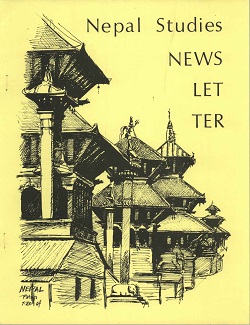Abstract
Sahar Tara is a community in Dolpa, Nepal, one of three villages in the world where the Kaike language is spoken. Kaike speakers are called Tarali. The perpetuation of the Kaike language is attributable to the resilience of Tarali livelihood systems and their continued attachment to place. Using informal interviews, participatory mapping, and participant observation, this research engaged Kaike speakers in an exploration of the relationships among their language, environment, and knowledge systems. Tarali negotiate their social and spiritual lives through highly developed adaptive knowledge about the environment, mitigated by natural forces, deities, and intimate historical ties to the land. As explicitly revealed in the story about the origins of the Kaike language, Tarali define themselves and their collective history in the Tichurong Valley concurrent with their conceptualization and cognition of the landscape. This is also expressed in the abundance of Kaike names with which they categorize and compartmentalize their spatial understandings of where they live and work. Tarali situate themselves on their land and in their environment through site-specific traditions of remembering in the form of oral histories and social narratives, highlighting the important role of language in perpetuating these traditions. In this place-based community where one’s livelihood depends on successful interaction with and adaptation to the specific ecological conditions of Tichurong, language acts as a mediator in articulating social-ecological relationships. This adaptive knowledge is transmitted across generations through Kaike and the continued reenactment of ceremonies, worship, and a particular physical and geographical occupation of space. The maintenance of the Kaike language is dependent upon the resilience afforded by this sustained engagement with a place-based livelihood system.
Acknowledgements
I would like to thank James Fisher for his continued guidance and support and for paving the way for my research. Laaje Budha provided crucial input, insight, and assistance, and I could not have managed without the kind support of Dhanu Budha, Jitendra Jhankri, or Jag Bahadur Budha. I am deeply indebted to the people of Sahar Tara for their hospitality.
Creative Commons License

This work is licensed under a Creative Commons Attribution 3.0 License.
Recommended Citation
Daurio, Maya. 2012. The Fairy Language: Language Maintenance and Social-Ecological Resilience Among the Tarali of Tichurong, Nepal. HIMALAYA 31(1).
Available at:
https://digitalcommons.macalester.edu/himalaya/vol31/iss1/8


